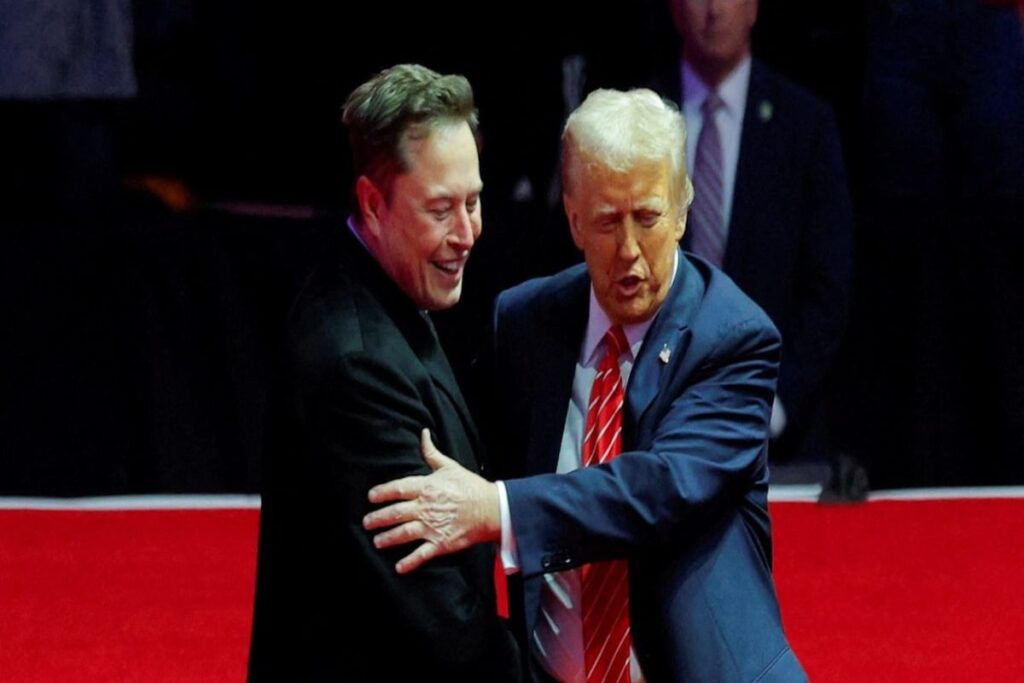The Trump administration’s return to power, paired with Elon Musk’s bold vision for government efficiency, is shaking up the federal job market in unexpected ways. Take Charles Ezell: once a mid-level IT worker at the Office of Personnel Management (OPM) in Macon, Georgia, he’s now the acting director of the agency overseeing millions of federal employees.
He’s not alone—across agencies like the Social Security Administration (SSA) and National Institutes of Health (NIH), career civil servants are landing major job promotions under Trump and Musk’s watch.
While some see golden career opportunities in 2025, others worry this recruitment trend could bend long-standing rules. What’s driving this federal job boom, and what does it mean for workers and employers? Let’s unpack the latest shake-up rocking Washington.
From Desk Jobs to Corner Offices
Charles Ezell’s story reads like a career fairy tale. Before Trump’s second term kicked off, Ezell handled IT duties at OPM’s Georgia outpost, rarely popping into the Washington HQ. Then came a call from a Trump adviser post-election. “I thought it was a headhunter pitching a private gig,” Ezell told a church publication.
Read Also: Lincoln, NE Unveils Biochar Tech, Cellphone Bans, and Basketball Buzz for 2025
Instead, Inauguration Day brought a bombshell: he’d leap from mid-tier techie to acting OPM director, a role thrust into the spotlight by Musk’s Department of Government Efficiency (DOGE) push. “It was shock and awe inside OPM,” a former colleague dished anonymously. “Chuck went from colonel to three-star general overnight.”
Ezell’s not a lone ranger. At SSA, Leland Dudek jumped from a mid-level anti-fraud analyst to agency head after bypassing bosses to share data with DOGE. Over at NIH, flu researcher Matthew J. Memoli—once at odds with pandemic brass—now runs the $50 billion agency. These Trump administration jobs promotions are turning heads, offering federal workers a rare shot at industry-specific job roles that usually take decades to snag.
Why This Matters in Today’s Job Market
The federal workforce—2.1 million strong—rarely sees such upheaval. Typically, civil servants grind through years of service, climbing ladders via structured paths like leadership training or senior executive programs. Trump and Musk are rewriting that playbook. “There are plenty of Trump supporters in the bureaucracy eager to help,” says Robert Shea, a former White House budget official. “They could make a big difference.” With Musk’s DOGE targeting waste and Trump vowing to slash spending, these federal job promotions signal a seismic shift in recruitment trends for 2025.
Why now? The job market’s buzzing with uncertainty—tariffs, deregulation delays, and global tensions are making private-sector hiring a rollercoaster. Meanwhile, federal gigs offer stability, benefits, and, lately, a fast track to the top for the right players. For job seekers, it’s a chance to pivot into career opportunities in 2025 that were once out of reach. Employers, though, face a dilemma: loyalists rising fast might sideline seasoned pros, rattling morale and efficiency.
The Musk Factor: A New Breed of Job Promotions

Elon Musk’s fingerprints are all over this. Leading DOGE—a non-Cabinet crew tasked with trimming government fat—he’s vocal about rooting out dysfunction. “We promote hundreds of civil servants daily when we find excellence,” Musk claims, though hard numbers are fuzzy. His rhetoric paints most federal workers as dead weight, but he’s spotlighting allies like Ezell and Dudek as proof the system can shine. At OPM, Ezell’s steering Musk’s mass firing push—think probationary cuts and “what’d you do last week” emails—moves some call illegal but others see as efficiency gold.
Dudek’s SSA rise is pure Musk drama. After handing DOGE sensitive data and getting suspended, Trump swooped in, axed the punishment, and crowned him boss. “Leland was fired for helping DOGE save taxpayer cash—can you believe it?” Musk posted on X. “Now HE’s upper management.” It’s a wild career advice 2025 tip: align with the big dogs, and you might just leapfrog the pack.
Winners in the Federal Job Game
Who’s cashing in on this Trump administration jobs surge? Opportunists, loyalists, and outliers, mostly. Memoli’s NIH ascent is a standout. A flu expert who clashed with Anthony Fauci over vaccine mandates, he aired gripes in 2021: “NIH’s rhetoric fueled hate against the unvaccinated,” he emailed a colleague. That stance made him a conservative darling—think Sen. Ron Johnson—and landed him atop NIH, leapfrogging deputy Lawrence Tabak (who’s since quit). Now, he’s slowing research funding, a DOGE-driven move that’s got scientists sweating but fits Trump’s lean-machine vibe.
Then there’s Dan Caine, tapped as Joint Chiefs of Staff chairman. A retired three-star general with a quirky resume—National Guard pilot, Iraq ops, CIA stint—he doesn’t check the usual boxes (like prior Joint Chiefs vice chair experience). Trump bypassed that with a “national interest” nod, though details are thin. These industry-specific job roles show how Trump and Musk are cherry-picking allies to push their agenda, legal quirks and all.
The Flip Side: Risks and Pushback
Not everyone’s cheering. Critics like Georgetown’s David Super see a dark edge. “Most civil servants are busting to follow the law and the administration’s legit orders,” he says. “But a few are all-in for Trump—and they could do real damage.” At SSA, Dudek’s firing the civil rights office and prepping 50% cuts—bold moves that thrill Musk but spook staff who dug up org charts showing he skipped four management tiers. “Normally, that’s a decades-long climb,” an SSA insider noted.
Legal hiccups loom, too. Memoli’s NIH gig sparked succession debates—insiders questioned if he qualified until NIH dubbed him “first assistant” to smooth it over. Caine’s Joint Chiefs role bends rules without much explanation. “It’s handy to have someone who’ll do what you say,” says GWU’s Richard Pierce. But bending norms could backfire if courts or morale tank.
What’s Next for Federal Hiring Trends

These promotions aren’t just one-offs—they’re a hiring tips 2025 blueprint. At OPM, Ezell’s team is reshaping HR for millions, pushing Musk’s cull-the-herd ethos. SSA’s Dudek is reorganizing field ops, vowing to “empower the best leaders” and “cut waste.” NIH’s Memoli warns of “further changes,” while IRS acting chief Melanie Krause fights to share taxpayer data with DHS—a privacy no-no to some. Each move signals a leaner, loyalist-led workforce, even as pushback grows.
For job seekers, it’s a mixed bag. “If you’re in sync with Trump’s vision, doors are flying open,” Shea says. Roles in IT, anti-fraud, research, or military advising could see fast-tracks—think career opportunities in 2025 for the bold. But if you’re a rule-stickler or Biden-era vet, it’s dicey. “Firing the respected leader beats down dissent,” warns Max Stier of the Partnership for Public Service. “You don’t need to axe everyone—just the head.”
Career Advice for Navigating 2025
So, how do you play this game? For federal workers, adaptability’s key. “Know your agency’s pulse,” Stier advises. “If you’re near a DOGE target, polish your transferable skills.” Private-sector folks eyeing government gigs should watch Trump administration jobs—openings might spike as veterans exit and loyalists rise. “Network now,” Pierce adds. “Promotions are moving fast—get in front of the right people.”
Employers, meanwhile, face a loyalty vs. competence call. “Promote the eager, but don’t ditch experience,” Shea cautions. “Balance keeps things humming.” With 69 million Americans tied to SSA benefits alone, per agency stats, disruptions could sting if newbies falter.
The Bigger Job Market Picture
Zoom out, and this fits a wild 2025 job market. Private hiring’s wobbly—tariffs and global spats are spooking CEOs, per EY’s survey (56% still plan M&A, but caution’s up). Federal jobs, though, are a rare constant—until now. Trump’s first term added 1,800 manufacturing jobs via tariffs, per reports. This time, with Musk’s DOGE flexing, the shift’s internal: promotions over purges (for some). “It’s a shortcut to compliance,” Stier says. “Risky, but effective.”
Stats back the stakes: 2.1 million federal workers dwarf private sectors like manufacturing (12.9 million, per BLS). If Trump and Musk slim that down—or retool it with loyalists—career opportunities in 2025 could pivot hard. “Elections have consequences,” Dudek wrote at SSA. For job seekers and bosses, that’s the 2025 mantra.
Your Turn: Climb or Cling?
This Trump-Musk jobs remix has us all talking—what’s your take? Are federal job promotions a golden ticket for go-getters, or a slippery slope for the job market? Job seekers, are you eyeing these fast tracks? Employers, how’s this hitting your hiring tips for 2025? Drop your thoughts in the comments, share this on social, or hit our career advice 2025 page for more. Let’s figure out this wild ride together!
Read Also; White Collar Recession 2025: Tech Layoffs Reshape Jobs and the Future
Wrapping Up: A New Era for Federal Careers
As of March 08, 2025, the Trump administration and Musk’s DOGE are flipping the federal job market on its head. From Ezell’s OPM helm to Dudek’s SSA overhaul and Memoli’s NIH reign, career opportunities in 2025 are popping for some—and rattling others.
It’s a high-stakes gamble: turbocharge loyalists, trim fat, and maybe bend a few rules. For workers and employers, it’s adapt-or-watch time—because in this job market, the only constant is change.

